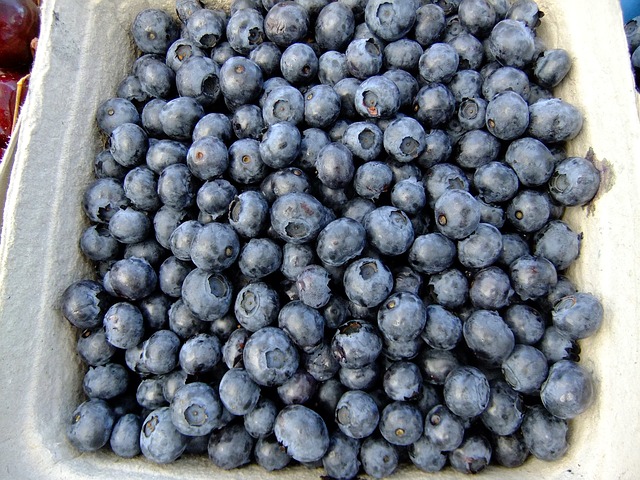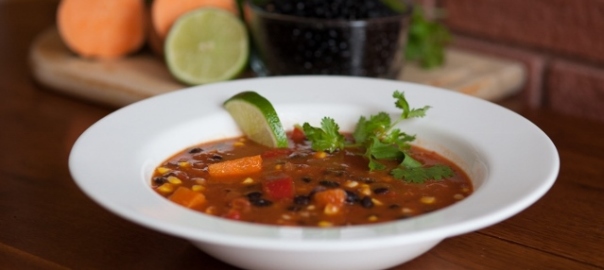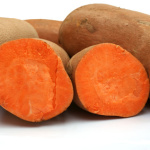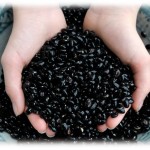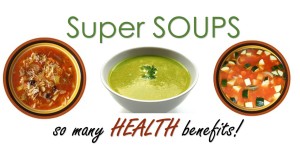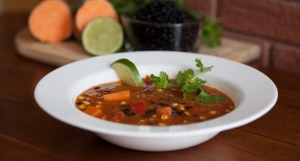 Soup is a wonderful food. It is comforting, easy to prepare, and filling. It can warm the chill of a cool winter day and fill your kitchen with an inviting aroma. The fact that specific tableware is designated for the sole purpose or eating soup is evidence of its prominent role at our kitchen tables.
Soup is a wonderful food. It is comforting, easy to prepare, and filling. It can warm the chill of a cool winter day and fill your kitchen with an inviting aroma. The fact that specific tableware is designated for the sole purpose or eating soup is evidence of its prominent role at our kitchen tables.
Soups are often chock full of nutrient-dense vegetables, legumes, and other fiber-filled ingredients that combine to deliver appealing textures and great flavours. Most soups help you obtain a variety of nutrients and the many health-promoting compounds found in vegetables in one bowl.
Decades of research have linked vegetable intake with health benefits. Although soup consumption has not been investigated extensively, the available research suggests that it’s certainly a good dish to have on your table. . .
Slimming Soups?
Can eating soup help you lose weight? Some studies suggest that soup consumption is linked with lower obesity risk. Research interventions studying how people lose weight have found that eating soup can help control body weight.
A recent study in the British Journal of Nutrition found that soup eaters tend to weigh less and have smaller waists than those who don’t eat soup: their findings were based on reports of more than 20,000 Americans surveyed by the National Health and Nutrition Examination Surveys between 2003 and 2008. Researchers found that soup consumers also had better overall eating habits that included more protein, fiber, vitamins and minerals, and fewer calories and fat.
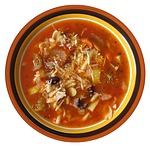
Some studies have attributed soup’s pound-shedding power to its high satiation potential (it makes you feel full), and recent research suggests that these satiating properties may be due in part to slow gastric emptying. Barbara Rolls, an expert in energy density and satiation (her Volumetrics diet is focused on choosing healthful foods that fill you up with fewer calories) has investigated soup’s satiation potential. One of her studies found that eating soup as an appetizer can decrease calorie intake at a subsequent meal by about 20%.
The combination of low energy density/high nutrient density of most soups may also be responsible for health benefits (energy-dense foods are high in calories and low in nutritional value). Most soups could be considered nutrient-dense foods, because they are typically low in calories but rich in vitamins, minerals, and other substances with potential health benefits, with limited solid fats, sugars, or processed starches. Research shows that diets emphasizing nutrient-dense foods might help prevent disease, and help people meet their nutrient needs without excessive calories.
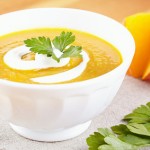 Eating soup can slow your rate of calorie consumption, because it takes a relatively long time to consume and that gives your brain some time to register fullness. So, soup may be a component of a successful weight loss program, not because of some magical fat-burning properties, but simply because it may help you limit the amount of food that you consume.
Eating soup can slow your rate of calorie consumption, because it takes a relatively long time to consume and that gives your brain some time to register fullness. So, soup may be a component of a successful weight loss program, not because of some magical fat-burning properties, but simply because it may help you limit the amount of food that you consume.
Health Benefits
Soups are a delicious and simple way to ingest generous amount of health-promoting vegetables.
The most healthful, nutrient-dense soups are those that use a basic broth/stock, a lean protein source (lean meat, fish, or beans/legumes), and a variety of vegetables. Limit cream-based soups, or cheese-topped soups, which are calorie-laden and are not considered as healthful.
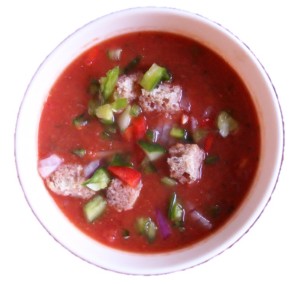 Great Gazpacho! A recent study found that gazpacho consumption was associated with lower blood pressure and reduced hypertension in people at high risk for heart disease. Researchers speculate that these health benefits were “probably due to synergy among several bioactive compounds present in the vegetable ingredients used to make the recipe.” Earlier research found that study volunteers who ate gazpacho twice a day for 7 days had decreased markers of oxidative stress and inflammation in their blood.
Great Gazpacho! A recent study found that gazpacho consumption was associated with lower blood pressure and reduced hypertension in people at high risk for heart disease. Researchers speculate that these health benefits were “probably due to synergy among several bioactive compounds present in the vegetable ingredients used to make the recipe.” Earlier research found that study volunteers who ate gazpacho twice a day for 7 days had decreased markers of oxidative stress and inflammation in their blood.
Chicken soup for a cold? A handful of studies have looked into this folk remedy, but the benefits aren’t clear. In 1978, Mount Sinai researchers conducted a study and found that a classic chicken soup was more effective at fighting congestion than hot or cold water. A more recent study found that a traditional “Grandma’s” chicken soup with onions, sweet potatoes, parsnips, turnips, carrots, celery, parsley, might ease cold symptoms, possibly due to mild anti-inflammatory effect (although researchers could not isolate which soup ingredients were protective). Generally the evidence for chicken soup helping colds is weak, but it seems that any nourishing hot soup might have some benefits, due to their nutrition-filled broth that rehydrates, easy feeding for a sore throat or poor appetite, or hot vapors to help clear nasal passages.
Soup’s On!
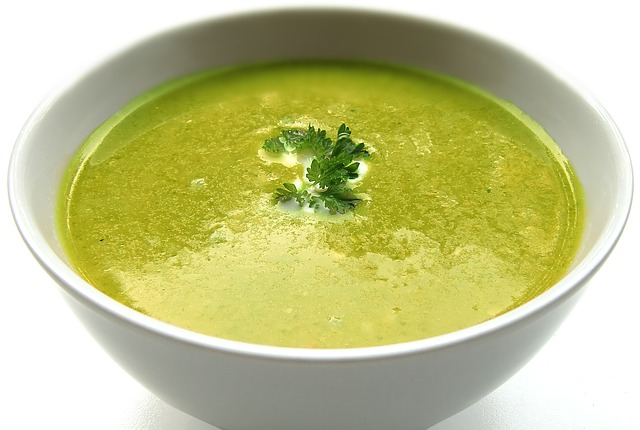 Soup is a terrific way to use leftovers. Most good soup recipes are fairly foolproof and you can easily adapt them to suit your taste. Don’t let a lengthy cooking time discourage you. You can prepare a simple soup in minutes, and while it cooks you will be free to do other things while the flavours blend. Also, many quickly-made soups can still be healthy and delicious (like this one) making use of prepared broth and some frozen vegetables.
Soup is a terrific way to use leftovers. Most good soup recipes are fairly foolproof and you can easily adapt them to suit your taste. Don’t let a lengthy cooking time discourage you. You can prepare a simple soup in minutes, and while it cooks you will be free to do other things while the flavours blend. Also, many quickly-made soups can still be healthy and delicious (like this one) making use of prepared broth and some frozen vegetables.
Consider making plenty of soup to refrigerate or freeze for a quick meal. Having soup on hand is great for days when you don’t feel like cooking.
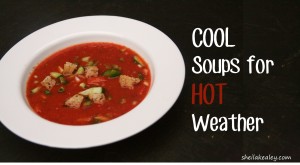 Chilled Soups
Chilled Soups
In summer we are inundated with a bounty of seasonal produce, but soups aren’t a common menu item. Yet chilled soups are perfect for summer dining. They capture fresh and colorful produce at its peak, and provide a refreshing start to any meal on a hot summer day. These soups pair well with light meals featuring salads and sandwiches, but are also a nice contrast to heartier fare. Find out more about chilled soups, and some great recipe ideas, in this article.
Healthy Soup Recipes
- Sweet Potato Black Bean Soup
- Butternut Squash Soup with White Beans and Greens
- Curried Butternut Squash Soup with Ginger
- Quick & Healthy Soup with Southwestern Flavours
- Summer Gazpacho
Soup is easy to make!
Here are some good compilations and guidelines.
- The Silky, Creamy Way to Make Soup Any Time (Epicurious)
- Creating Delicious Soups: Easy as A-B-C (AICR)
- 30-Minute Soup Recipes (Eating Well)
- Soup recipes from the AICR Test Kitchen (AICR)
- Martha Rose Shulman Soups (New York Times)
- How to Make Soup from Almost Any Vegetable (The Kitchn)
- 8 Healthy Winter Soups (Berkeley Wellness)
Share This:
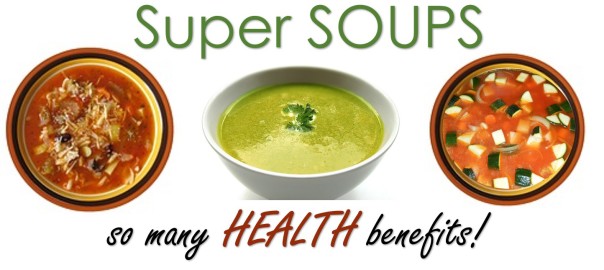






 alendar years.
alendar years.
